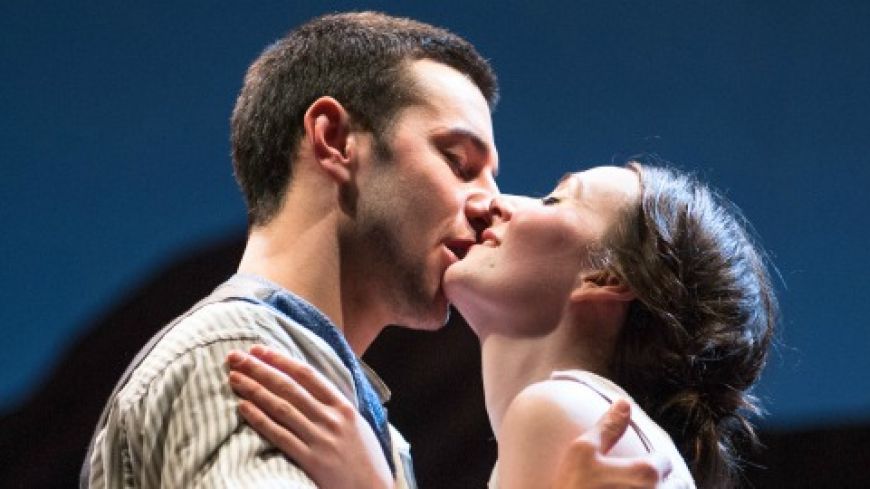
In another marking of the century since the start of WW1, Sell a Door Theatre Company has chosen to stage Alastair Cording’s adaptation of Sunset Song. The book by Lewis Grassic Gibbon, the pen name of James Leslie Mitchell, is a favourite; some say the favourite,from the Scottish canon.
Mitchell sets his tale in his homeland of the North East. In the densely and radically written text first published in 1932, he charts the history of the lands of Kinraddie, going on to chart the history of the Guthrie family that produces Chris, the singular female character who occupies the centre of the novel. Mitchell writes in a strong Scots English whose rhythms, idioms and cadences gives voice to the local characters that people the novel and that Mitchell knew and portrayed with such vitality.
Chris Guthrie observes and experiences the toughness of farming life as she grows up in her family of brothers on Blawearie Farm. Her brightness and hope of education is ended at the death of her worn out mother when Chris herself becomes yoked to domesticity and convention. Both she and her mother Jean are subject to the duality of lust and Presbyterian guilt in her father John. Mitchell sensitively exposes her suffering as a woman through the hope of youth being dashed by the reality of nursing and running a farm to the loss of love in marriage and facing widowhood after her changed man is shot in France. All these are subject to being the “speak o the Mearns”, that is to say local gossip. The text expresses a uniquely feminine perspective on a time of change in Scotland and elsewhere in the world.
In this production and interpretation of the work, about land, independence, community, and survival, the cast shares the narration against a set of corrugated iron shapes like a range of low hills and in costumes in the palette of rust and brown suitable to the rural setting. There is a big white screen at the back of the stage that creates an expectation of visuals that fail to materialise - a missed opportunity to use today’s technical wizardry to show Grampian skyscapes at the very least.
The dialogue is delivered with accents faithful to the original North East Scots so praise to vocal coaches Jean Sangster and Ros Steen as well as to the cast. It is always affirming to have a local language spoken robustly and unapologetically in public. They also create sound effects like a train, a car and the wind on stage and the show includes live original music, which is sadly somehow lost in the proceedings and the ancient Scots lamentthe Flooers o the Forest features aptly as it does in the text. Although the harvest and a war scene are shown through some choreography, much of the piece has a static, tableau feel.
While this brave production is as faithful a rendering of Mitchell’s original work as can be expected from the style of prose that quietly articulates an inner life, the dramatization lacks poignancy and fails to express the depths that he managed to plumb.
Tuesday 7 to Saturday 11 October 2014
tour continues to
Glasgow Kings 21-25 Oct
Inverness Eden Court 27-29 Oct
Dundee Rep 5-8 Nov
His Majesties Theatre 10-13 Nov

